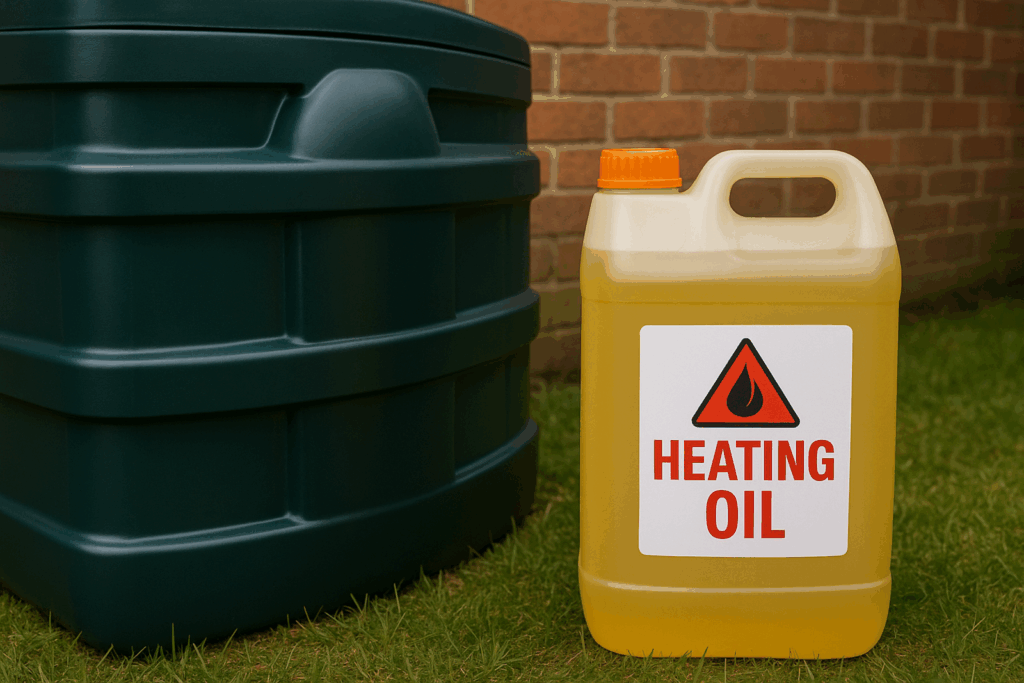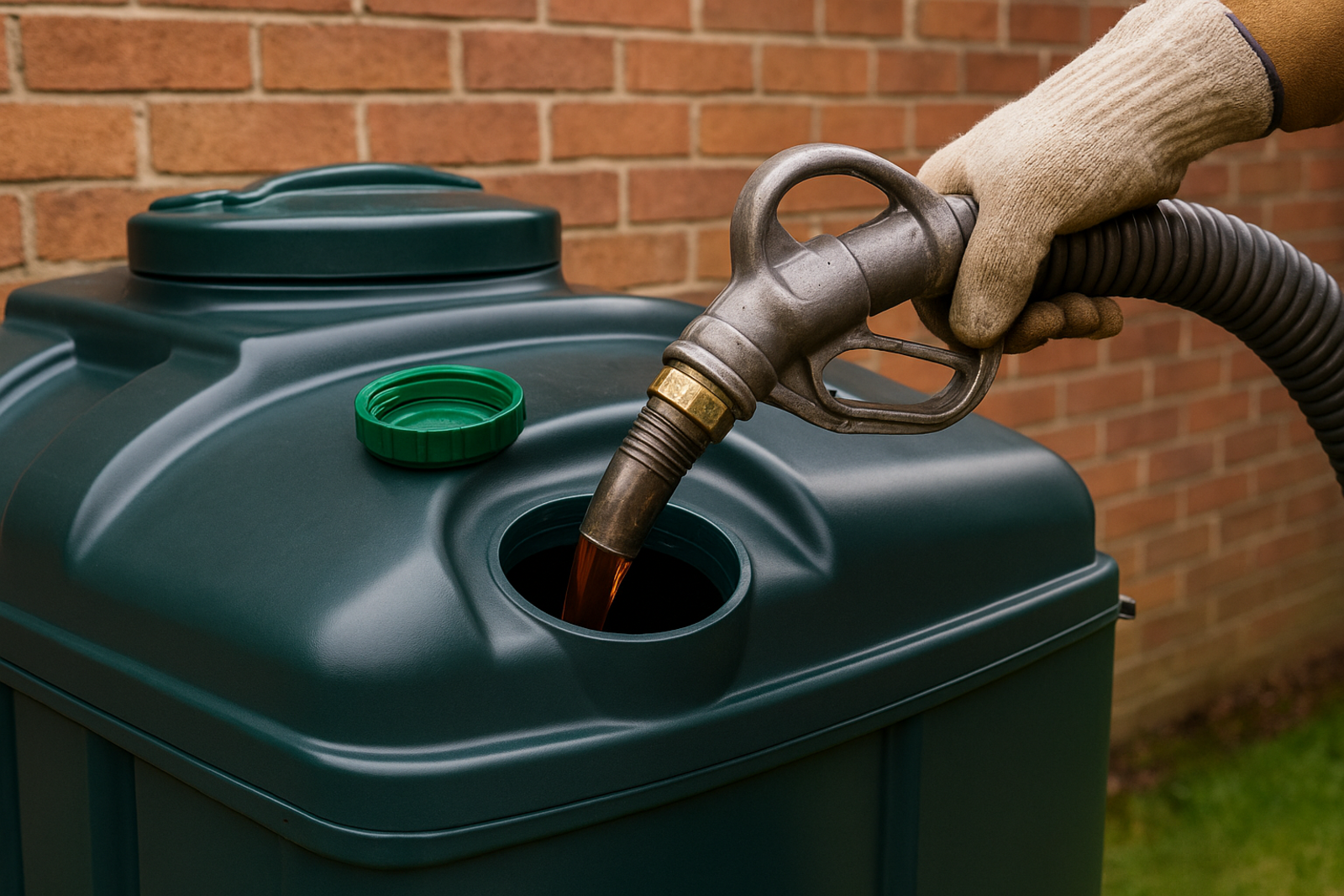Finding out your oil tank has run dry can be frustrating. Whilst it’s good practice to avoid it happening, sometimes it’s just one of those things that’s unfortunate or difficult to avoid. This is especially true when the tank is in a hard-to-reach area or doesn’t have a gauge. So, what happens if your oil tank runs dry?
This guide explains the potential issues that can arise when an oil tank runs out of fuel. It will talk you through the steps to take if their tank runs dry and provide practical tips to prevent the situation from happening in the first place.
What happens if my oil tank is empty?
When an oil tank runs dry, several consequences can occur, leading to costly repairs and operational disruptions. This can be a very serious problem if it happens during the cold winter months when you are relying on heating oil. So, what happens if your oil tank runs out of oil, and why should you do all you can to avoid it?
1. Heating system shutdown
When your oil tank runs dry, your boiler or heating system will stop working because it has run out of fuel. This can leave your home or business without hot water or heating, which can be a serious problem during the cold winter months.
2. Airlocks in the fuel line
One of the things that happens if your oil tank runs empty is that air gets into the fuel line. This means that your heating system will struggle to work again when you add oil. To solve this problem, you will need to bleed the system.
3. Residue problems
In older tanks or tanks that haven’t been cleaned for a long time, residue can build up at the bottom. Without oil, the tank will draw this residue up through the fuel line and into the heating system. If this happens, you will need to inform and book a qualified engineer to come and drain the system. They will also need to clean the filter.
4. All leading to costly and time-consuming repairs
The combination of the potential problems above often requires professional services. Hiring an engineer to diagnose and fix the problems can be expensive. Sometimes, you may have to wait until they are available, resulting in significant downtime for your home or business.
Steps to take to address what happens when your oil tank runs dry
If you find yourself in the unfortunate situation of running out of oil, the first thing to do is not panic. Following these steps will address what happens when your oil tank runs dry.

- Refill the oil tank
- Bleed excess air from the tank
- Reset your boiler or heating system to get it running again
How to bleed excess air
You might find it easier to call an engineer to carry out the work, but it is also possible to do it yourself. Here is a step-by-step guide to bleeding excess air that can enter the fuel line and heating system if your oil tank has run dry.
- Turn off the boiler.
- Find the bleeder valve/screw on the fuel pump.
- Use a plastic container to catch any excess oil. Place the container underneath the bleed screw; otherwise, it will spill everywhere, and it can be a tricky cleanup operation.
- Open the bleed screw slowly and carefully. Do not do it too quickly, as the oil will spurt out. Keep the wrench or Allen key on the screw ready to tighten it up if needed.
- Listen out for a hissing sound as air escapes from the system. After a short period, oil should start to flow out, indicating that all the air has escaped.
- Close the screw once all the air is out.
Practical tips to prevent your oil tank from running dry
It’s best to ensure your oil tank doesn’t run dry in the first place, so you don’t have to worry about what happens if your oil tank runs dry. This will save you the headache, stress, and costly repairs. There are several methods to help you avoid running into this problem.
- Know your fuel usage: Work out how much fuel you will use per day so you have a rough idea of when it will run out.
- Monitor your fuel levels: Keep an eye on your fuel levels with regular checks. You can use some of our tank accessories, such as the adjustable oil tank float clock contents gauge, to help.
- Schedule tank checks: Put some dates in the diary to complete checks.
- Maintain your heating system: Regularly clean your tank to make sure it is working at its optimum level.
Shop now: Adjustable oil tank float clock contents gauge from QuickTanks – only £29.99 incl. VAT
We have a large selection of different oil tanks to suit your needs, so shop our extensive collection today. If you need any advice on choosing the right oil tank for you, our friendly team is on hand and ready to help. Just get in touch.

